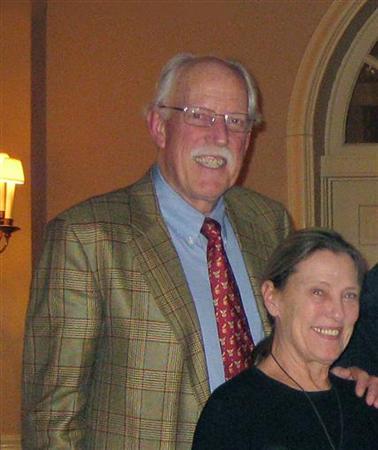The Prosecution Opposed against Releasing the Alleged Cuban Spies until Trial
- Submitted by: admin
- international
- United States
- Politics and Government
- 07 / 01 / 2009

New court documents, however, show their apartment may have held an intriguing clue. In addition to a shortwave radio found by the couple's bed and the previously disclosed sailing guide to Cuban waters, investigators said they found a copy of "The Spy's Bedside Book," the spy lore anthology compiled in 1957 by Hugh Greene and his brother Graham, a former British intelligence officer and the author of "Our Man in Havana," a spoof of the intelligence business.
"It's a good read," Peter Earnest, a 35-year CIA operations officer and the executive director of the International Spy Museum in Washington said of the anthology. "I'm not sure what other significance we can attach to the book."
The latest disclosure - which provides more details on how the federal government thinks that the couple operated as a husband-and-wife spy team - comes as federal prosecutors argue against releasing the Myerses from jail until trial.
"The Myers are clandestine Cuban agents who have contemplated escape from the United States in the past," Assistant U.S. Attorney Gordon Michael Harvey wrote in a court filing, sections of which were censored. "They continue to contemplate it."
The Myerses, who pleaded not guilty last month to charges of conspiracy, wire fraud and acting as illegal agents of Cuba, argue for house arrest under electronic surveillance. Harvey, however, suggests that the couple - who used fake names and documents to travel to Cuba in the past, he said - has "significant means to finance their escape."
"Now, face(d) with an indictment that seeks their imprisonment for the rest of their lives ... the defendants have a very strong motivation to flee to Cuba, the country that they call 'home,'" he wrote, adding that if they escaped to Cuba or its equivalent of an embassy in Washington, "they will be gone for good" because the U.S. doesn't have an extradition treaty or diplomatic relations with Cuba.
As for their offer to post a bond, Harvey writes that "for the Myers, it has never been about the money."
"The FBI's investigation has revealed that the Myerses were not motivated by money to serve as clandestine agents for Cuba but by communist ideology," he said, adding that the couple has more than $600,000, not from Cuba, but through an inheritance.
Given a choice between prison or being greeted as heroes in Cuba, Harvey wrote, "Leaving behind a money bond is highly unlikely to weigh heavily in their calculus."
He argued that the couple, during four hotel meetings with an undercover FBI source, "admitted to essentially every material fact the government will need to prove them guilty of the charges they now face."
He provided greater detail on how Kendall Myers, 72, a former State Department employee with a Top-Secret clearance, disclosed U.S. information. According to the court record, Myers told the FBI that he typically memorized information or took notes on documents and put his notes in his office safe. Sometimes, he removed classified documents and brought them home. Gwendolyn Myers, 71, would then "process the documents page-by-page" and Kendall Myers would return them to the State Department the next day.
Harvey noted that the couple agreed to give the undercover agent their "views and opinions" about various Obama administration officials responsible for Cuba and Latin America policy and agreed to be trained to use e-mail and an encryption device to decode e-mails.
The government said federal guidelines suggest that Gwendolyn Myers could face up to 17 years in prison; and Kendall Myers up to 19 years. Harvey said that "given the gravity of their offenses," the government would likely seek sentences in excess of the advisory guidelines if they're convicted.
The filing notes that Kendall Myers was convicted in December 1976 of negligent homicide in Washington, and that under federal sentencing guidelines, the conviction would be a factor, as it fell within 10 years of the beginning of his spy career. The Washington Post reported last month that in 1975 he crashed his car in Washington, killing a 16-year-old girl.
Source: Miami Herald
Comments